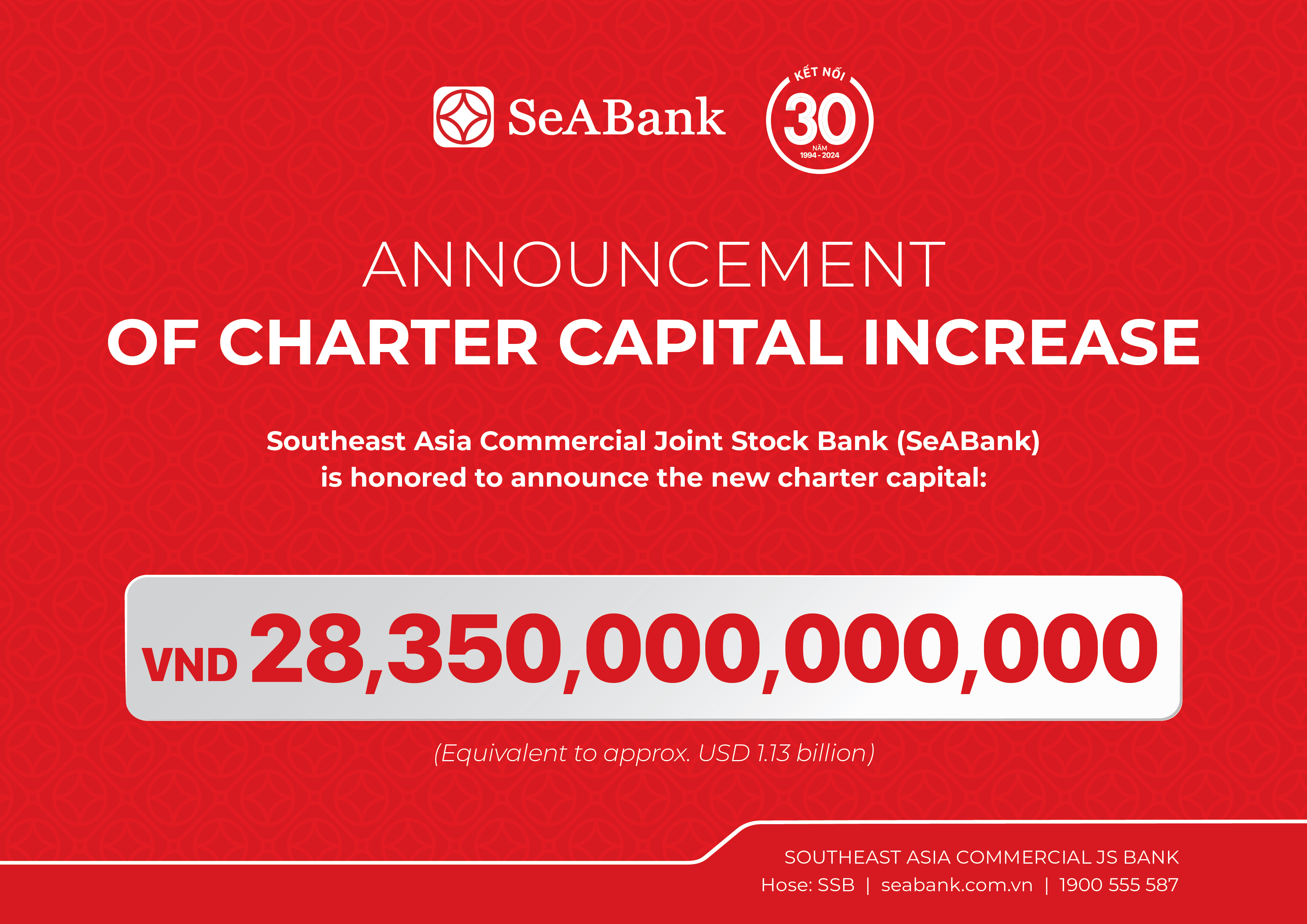News
05/11/2024
Southeast Asia Commercial Joint Stock Bank (SeABank, HOSE: SSB) has been officially approved by the State Bank of Vietnam (SBV) to increase its its charter capital to VND28,350 billion (equivalent to approx. US$1.13 billion). This is completed after 2 rounds of issuing shares to pay dividends and to increase equity capital from owners’ equity.

On October 30, 2024, The SBV has issued Decision No. 2378/QD-NHNN regarding the adjustment of charter capital on SeABank's Operating License. Accordingly, SeABank's charter capital increased by VND3,393 billion (approx. US$133.87 million) from VND 24,957 billion (approx. US$984.69 million), reaching VND28,350 billion (approx. US$1.13 billion), up nearly 13.6%.
The capital increase is completed through issuing shares to pay 2023 dividends and issuing shares to increase equity capital from owners’ equity. This is on track to the capital increase roadmap approved by SeABank's 2024 Annual General Meeting of Shareholders.
Charter capital increase is an important part of SeABank's development strategy, aiming at enhancing capital and financial capacity to improve capital safety, supplement operating capital, and invest in technology... Therefore, SeABank will have a solid, comprehensive foundation to drive growth and pursue its sustainable development strategy associated with Governance - Environment - Society (ESG).
By the end of the first 9 months of 2024, SeABank has affirmed its market position and operational efficiency with PBT of VND4,508 billion (approx. US$177.86 million), up 43% YoY; CASA impressively grew to VND20,677 billion (approx. US$815.82 million); ROE and ROA respectively recorded at 14.96% and 1.73%; CIR remained at 32.54%, etc. Besides, the Bank achieved positive indicators by maintaining a solid and effective risk management, typically: CAR of 12.85%, higher than the minimum requirement by Basel III (10.5%); NPL controlled at 1.87%.
Pursuing its sustainable strategy, SeABank will continue to consolidate its foundations comprehensively and enhance financial capacity. This would enable the Bank to increase market competitiveness, promote sustainable development, and strive to be the favorite retail bank in Vietnam.